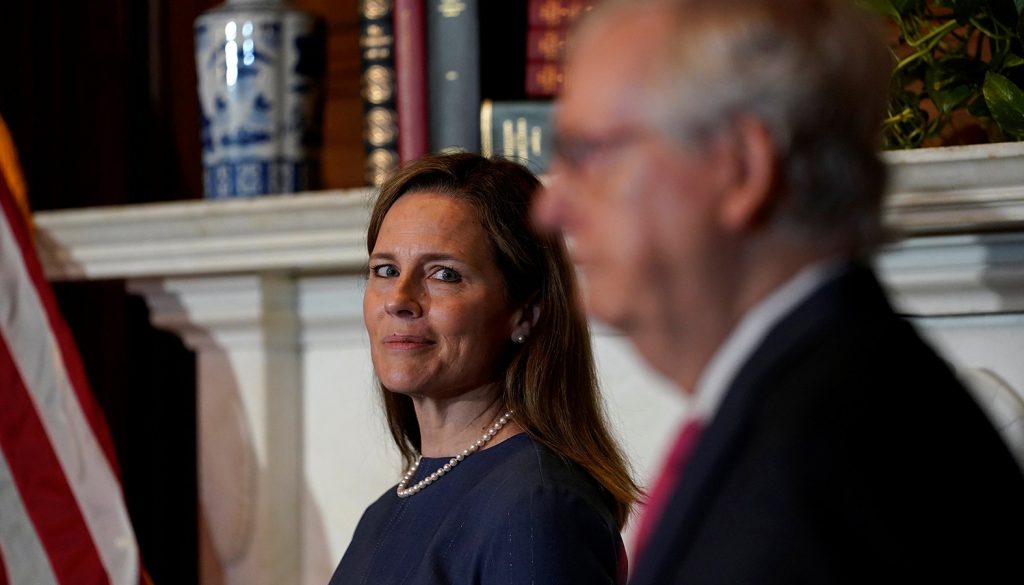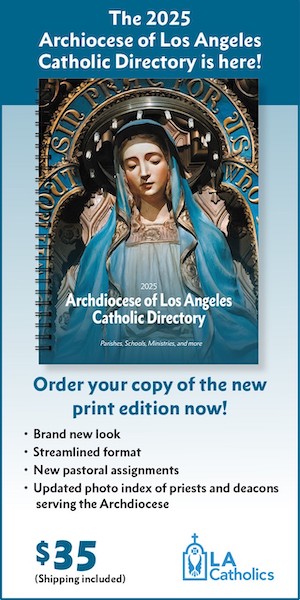The only advice I can give any Catholic serious about their faith, wondering how to prepare mentally, spiritually, and even physically for what the few remaining weeks of the election cycle might bring, is to look toward Scripture.
I think the Gospel of John says it best when we read, “Buckle up, buckaroo.” For scriptural textualists out there, the exact quote is: “I have said this to you, that in me you may have peace. In the world you have tribulations: but be of good cheer, I have overcome the world” (John 16:33).
There’s a Catholic running for president, there’s another Catholic nominated for the Supreme Court, which would bring the number of Catholics on the Supreme Court to a staggering six out of nine justices. If you were a baseball player hitting .600, that would imply you’re either using some kind of performance enhancement drug or you played for the Houston Astros a couple of years ago.
The only thing more remarkable about all of these Catholics engaged in the American public arena is how much division and conflict their presence engenders. We have come a very long way from the days of John F. Kennedy having to promise a convention full of Southern Baptists that he would not be taking orders from Rome. That anti-Catholic staple has thankfully gone the way of the Whigs.
But it does make me recall a great line from the first Catholic to run for president of the United States. It was Al Smith, who ran against Herbert Hoover in the 1928 presidential election, a time where being a Catholic could prevent you from getting a job or living where you wanted to live. Smith was a happy warrior type of politician and one with a great sense of humor. He brushed off the accusations against him that his presidency posed a serious threat to America’s independence. It was said that if he were to be elected, the pope would be moving into the White House.
After he lost the election to Herbert Hoover, reporters asked Smith if he had had any communications with the Vatican. Smith replied he told the pope: “Unpack.”
Were it so that we still lived in such simpler times. We don’t. We live in the time that God gives us, and he has decided to put us all in very interesting times — when you can have six Catholic judges in one room and get at least three different opinions on grave moral issues that seem to be settled Catholic teaching.
In the case of the Catholic recently tapped to fill a Supreme Court seat, her nomination seems to have triggered a certain type of hysteric reaction, from criticism of her and her husband’s adoption of two children from Haiti, to her belonging to an ecumenical prayer group. This triggering only seems to come into play when that same publicly Catholic person happens to uphold a lot of “old-fashioned” Catholic principles. Like a Newtonian formula, a lot of “old-fashioned” anti-Catholic bigotry comes out at the other end of the equation.
When presented to the U.S. Senate for confirmation to the judicial job Amy Coney Barrett currently holds, she was now famously grilled about her religious beliefs by the senior senator from California. In her summation of Judge Barrett’s qualifications for the position, little was said of her legal knowledge and experience. Instead, what troubled the senior senator from California was how strong the “dogma” lived within Judge Barrett.
Maybe that crack wasn’t as bad as a Thomas Nast cartoon from the 19th century, showing bishops slithering up on America’s shores like serpentine invaders with their miters looking like the open jaws of alligators, or a Ku Klux Klan rally in front of a burning Catholic church in the early part of the 20th century.
To be clear, I’m not trying to assert “victim” status for my fellow Catholics here, just putting things in perspective as another Catholic is about to confuse and maybe even frighten her fellow Americans with her “strange” beliefs.
What if Judge Barrett does have her day in front of inquisitive United States Senators, and what if some of those senators find themselves flummoxed about her core beliefs? Instead of looking at this as the violation of the Constitution regarding its prohibition of religious tests for holding office, let’s think of ourselves in a similar situation. If someone accused us of having the “dogma” alive and well within our core principles, could we be convicted of that “offense”?

